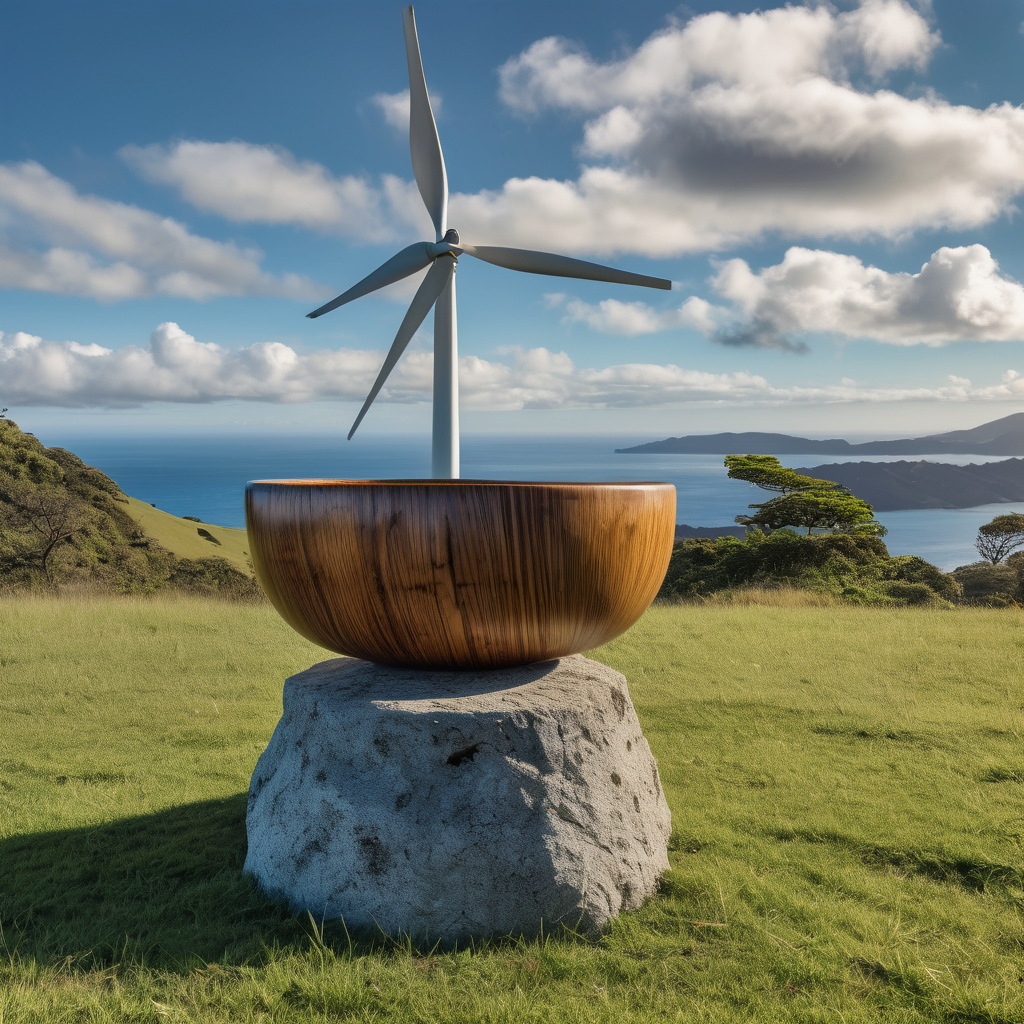Pacific climate leaders have voiced their disappointment over New Zealand’s recent decision to significantly reduce its methane reduction targets. At the Adaptation Futures Conference held in Christchurch, Tuvalu’s Climate Minister Maina Talia stressed that the battle to limit global warming to 1.5 degrees Celsius cannot be fought through carbon reduction efforts alone. He underscored the necessity of addressing methane and other short-lived climate pollutants.
The air of discontent followed an announcement by the New Zealand government on October 12, indicating a cut in biogenic methane reduction targets to 14-24 percent below 2017 levels by 2050, down from a previous commitment of 24-47 percent. Talia expressed his dismay, stating, “We are disheartened to hear that New Zealand is decreasing its emission targets,” during an interview with Pacific Waves.
Sefanaia Nawadra, director-general of the Pacific Regional Environment Programme, echoed the sentiments of disappointment and called for New Zealand to take more responsibility for its emissions. He expressed hope that the nation would contribute significantly to the reductions needed globally. “I know Pacific Island countries will be disappointed because it doesn’t contribute constructively to the work we’re all trying to do,” he remarked.
While discussions around climate action often emphasize carbon emissions, Nawadra highlighted the importance of including methane reductions in nationally determined contributions (NDCs) for large methane-producing countries like New Zealand. A report by the New Zealand Climate Change Commission indicated that for every percentage point reduction in methane ambition, the country would need to offset 36-44 million tonnes of CO₂ equivalent elsewhere.
The Pacific Islands Students Fighting Climate Change (PISFCC) responded to New Zealand’s revised targets, labeling them as “shocking news.” Caleb Pollard from PISFCC stated that, unfortunately, such governmental decisions have become expected, emphasizing that climate action should be a shared responsibility among all nations.
Activists have also criticized the climate policies of both New Zealand and Australia. As New Zealand recalibrates its targets, Australia has faced similar scrutiny—for instance, extending one of the largest gas export projects globally. The implications of these policies reach beyond the countries themselves, affecting the entire Pacific region, which is already grappling with the harsh realities of climate change.
Cynthia Houniuhi, president of PICFCC, reflected on her perception of New Zealand and Australia as ‘big brothers’ of the Pacific, arguing that both countries have the potential to take on true leadership roles in climate action. She emphasized that the same cyclones impacting nations like Vanuatu also arrive in New Zealand and Australia, reinforcing that all stakeholders share the risks.
In response to concerns about methane reduction, New Zealand’s Climate Minister Simon Watts cited technological limitations and the necessity to maintain agriculture production to meet global demand. However, he affirmed the government’s commitment to adhering to international emissions reduction targets, looking forward to discussions with Pacific counterparts at the upcoming COP30 in Brazil.
In this era of escalating climate urgency, it is essential for nations to collaborate and enhance their commitments to combating climate change. The sense of disappointment among Pacific leaders can serve as a clarion call for increased ambition from all nations, especially in mitigating the threats that climate change poses to vulnerable regions. Such collective efforts might foster a sustainable future for the Pacific Islands and beyond, uniting governments and communities in their fight against climate change.
